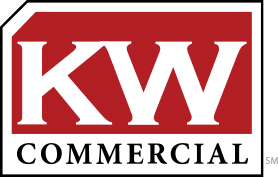For Buyers
The Home Buying Steps
A closer look at the steps to buying a home
Step 1
Get Pre-Approved
You'll want to make sure to get this process started asap, as getting pre-approved for financing is essential.
Step 2
Choose an Agent
Choose an agent whose personality meshes with your own and whose experience can work in your favor!
Step 3
House Hunting Begins
We'll take note of your requirements and start searching for properties that fit the bill!
Step 4
Make an Offer
We'll draw up an offer and negotiate on your behalf.
Step 5
Make a Deal
We might receive a counter offer. We'll review it with you and decide on next steps.
Step 6
Move In
Schedule the inspection, get the keys and move into your new home!
Buy or Sell First?
Every situation is unique, so we like to examine a few factors before advising which is best for you. For example: What are the current market conditions? Are you financially capable of carrying two properties without feeling stressed? If we're in a seller's market you might want to find a new home first, but if we're in a buyer's market it's probably best to sell your property first. Let's take a look at the advantages of both.
Buying First
Works best when:
- There is a lot of competition in the market and property prices are rising
- You’re confident there will be a high level of demand for your existing property
- You can negotiate or make it conditional on selling your own home
- You’re prepared to accept an offer that lets you move on or pay bridging finance.


Selling First
Works best when:
- Property prices are flat or declining
- if you want greater certainty about how much you have to spend on your next home
- If you’re moving locations and buying in a different and slower market
- If you can negotiate a long settlement or know that you’ll be able to find something that suits your requirements.
Home Operating Costs
Taxes
Property taxes are a major source of income and are used to help pay for city services. Each municipality determines their own tax rate every year.
Utilities
Utilities are the services required to run your home including: power, water, sewer and heating costs. The cost of utilities can vary widely from home to home and from season to season.
Insurance
Home insurance can protect you against all types of damage to your home, such as flooding, vandalism and theft. Most lenders require you to have home insurance to get a mortgage so they can protect the asset they are lending on.
Choosing a Neighborhood
The Home You Want
Are you interested in single-family, condo or townhome? Do some research of what types of homes offer that will help narrow down your search area.
Consider Your Commute
Do you need a car to get to work? Are you going to be taking transit? Do a test run before committing to a certain area.
Old or New Houses
Older neighborhoods are great for their charm and character, but often older homes require more repairs, newer developments have modern finishes and less repairs needed.
Walkscore
How important is it to you to be walking distance to things like schools, shopping and groceries? Think of what you want or need to be close to.
Must Not Have
Everyone has wants but have you considered the things you don't want? If you hate noise you might want to steer clear of the college area for example.
The Offer Process
Let's talk about the offer process, here are the steps and what to expect.
Draft the Offer
We will draft an offer that protects you and include any clauses that make sure are needed. Keep in mind that this offer is just an offer, until it is accepted.
Accept
The Seller may accept your offer—CONGRATS!
Time to celebrate, now we will move ahead with any conditions laid out in the offer like home inspection. Once completed we wait for closing and then MOVE IN!
Reject
The Seller may reject your offer.
We will ask questions to discover why and if there is anything we can do to make the offer more appealing. If not we move on and find the home you were meant to have!
Counter
The Seller may come back with their own offer
In this case, we will review the terms with you and continue to negotiate until we have reached a mutual agreed upon offer or until no agreement can be reached.
Closing Costs
Everything you'll need to budget for.
Before Closing
- Deposit
- Property Appraisal
- Home Inspection
On Closing
- Land Transfer Tax
- Property Tax
- Mortgage Insurance
After Closing
- Moving Expenses
- Utility Connections
- Renovations
- Immediate Repairs & Maintenance
Home Buyer’s Checklist
From beginning to end, we’ve created a list of things you might not be thinking of.
Two Months Before
- Start downsizing and donating old and unwanted items
- Start researching moving costs and companies
- Collect school records and transfer
- Order packing supplies
One Month Before
- Change your address and send moving notifications to friends and families
- Find local healthcare providers and shopping necessities
- Buy any new appliances or make plans for what to buy
Two Weeks Before
- Contact utilities
- Finalize moving arrangements
2-3 Days Before
- Plan payments and expenses for moving
- Defrost your fridge
- Clean as you continue to pack
- Pack things you will need right away separately
Moving Day
- Do a final walkthrough
- Keep all receipts
- Pre-clean, seal any windows or doorways
- Check for damages in your new home that will need to be fixed
- Unpack room by room
Frequently Asked Questions
How long does the process usually take?
Buying a home can happen in a week or take months. We will work with you to make it happen as quickly as possible.
What is a buyer vs seller market?
A seller's market happens when there's a shortage in housing. A buyer's market occurs when there are more homes for sale than buyers.
How do we know what we can afford?
We'll walk you through the process off figuring out how much you can afford, the first step is making an appointment with a mortgage broker




